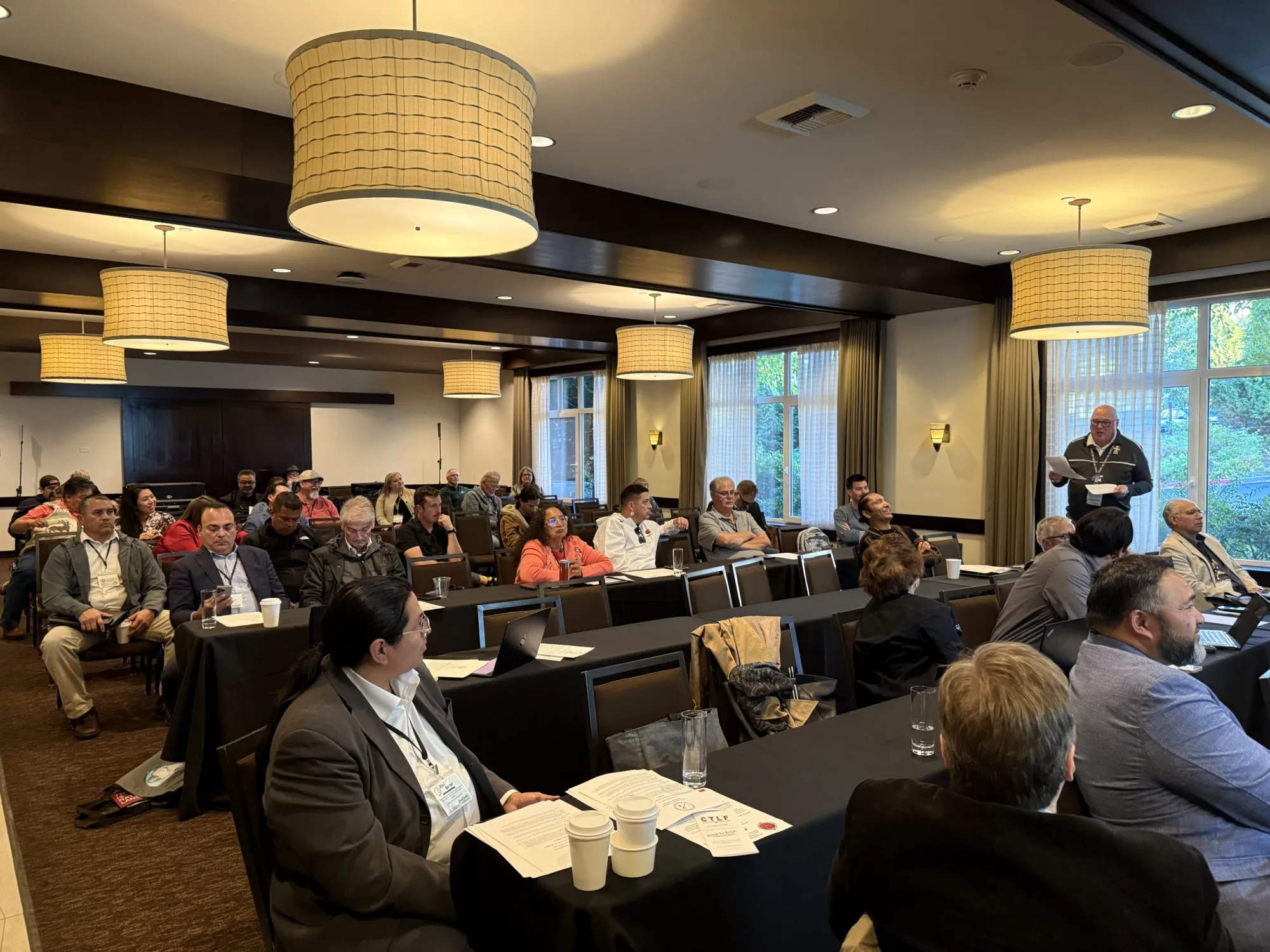On Oct. 10 the Trump administration terminated the entire staff of the Treasury Department’s Community Development Financial Institutions Fund, which provides critical capital to 69 Native-certified lenders serving tribal communities nationwide, including the Pacific Northwest.
All CDFI Fund staff received termination notices effective Dec. 13. This marks the first time a federal agency has conducted mass terminations during a government shutdown in modern U.S. history. But Native-certified community development financial institutions, or Native-ceritfied CDFIs, are wondering if their previously allocated funding will be paid out, leaving them to face uncertain futures during the government shutdown.
Native-certified CDFIs have served their communities with financial opportunities in areas where traditional banks are scarce. In cases where Indigenous people have the option to use traditional banks for these lending opportunities, they often are met with qualifications they can’t meet. But with CDFI lending, a more creative approach is taken to underwriting or assessing an applicant’s financial history for loan approval, said Jordan Ruiz, executive director of The Northwest Native Development Fund and Colville Tribes descendant.
“We’re not looking the way that traditional financial institutions are,” Ruiz said. “A lot of times we’re not taking a backwards look into people’s credit history. We definitely do pull credit reports more for impact tracking, but we really look to the future and how we can help people be in a better position so they can become bankable.”
Each CDI is slightly different and offers different services for their client, but the goal is to stimulate the Native economy with commercial loans, consumer loans, and small business loans. But the NNDF provides technical assistance for new businesses, financial education courses, budgeting and marketing classes for established businesses and a money trauma course that Ruiz said is important to the Pacific Northwest community.
“Just the idea that we could potentially lose funding that would strip those services of our community, and not even just for businesses, these courses are just really important for our community,” she said. “And so you think about not having those types of financial services available, that would be really devastating for people who aren’t even business owners.”
The funding that Native-CDFI’s get from the CDFI fund comes from the Department of Treasury. The Native American CDFI Assistance program also known as NACA, has provided more than $221 million in support since 2001, generating over $1.6 billion in loans and investments across Native communities through 2021, according to Tribal Business News.
According to Dave Tovey, president of the Affiliated Tribes Northwest Indians Economic Development Corporation and enrolled member of the Confederated Tribes of the Umatilla Indian Reservation, the loss of CDFI funding could be detrimental to the economy of Indian Country in the Pacific Northwest.
“We still have a financing need,” Tovey said. “People have to have some means to finance a business or a home that’s not by otherwise conventional means that might not be available to them anyway.”
ATNI is a non-profit organization that represents 57 Northwest tribal governments from Oregon, Washington, Idaho, Western Montana, Northern California and southeast Alaska. During the annual convention for ATNI, the economic committee passed a resolution and presented it to the organization to pass as a whole, which calls for the current administration and Congress to “protect the Community Development Financial Institutions Fund and Native American CDFI Assistance program from termination and staffing cuts.”
Disappearing building blocks for tribal economies
For some Native-certified CDFIs, the loss of funding means they might have to shut their doors. Fortunately for the Northwest Native Development Fund, they received the MacKenzie Scott Native-CDFI grant, which has given them a buffer during these uncertain times. But there are still Native-CDFIs left without knowing how long they’ll be able to operate.
“It just feels like another example of promises made to Indigenous peoples that will not be honored,” Ruiz said.

According to Ruiz, the NNDF allows tribal fishermen to secure loans for boats through non-traditional means. In the Pacific Northwest, there are tribes that have sovereignty rights on the coast that allow them to fish without having to report to the IRS how much income they make from fishing since it’s a trust income.
However, she added, many traditional financial institutions shut lending discussions down when tribal fishermen want to apply for a loan because their fishing income doesn’t have to be reported to the IRS. But with Native CDFI’s like the NNDF, fishermen and lenders work together to reach solutions that are culturally sensitive and respected.
In many cases, Ruiz said, the NNDF looks at fishing tickets, which show the weight of the fish and the price it sold for. These tickets document what fisherman caught and how much they were paid by weight and wouldn’t be accepted by traditional lending institutions but can be used by her financial institution in a loan application process, she said.
“Generational poverty is being handed down while we’re trying to build generational wealth, and all of these resources that have been made available to just disappear overnight is just a whiplash that I think we’re all going to experience,” Ruiz said.
Tovey, who’s also the executive director of Nixyáwii Community Financial Services, said the resolution will now be taken to the National Congress of American Indians which convenes in Seattle in November. Although getting a resolution to NCAI sheds light on issues for Indigenous peoples Nationwide, there’s still work that needs to be done to bring back the funding.
“You have to have those conversations and get into congressional offices,” he said. “You have to tell them that [it is] important to us here in the Northwest.”
By Lyric Aquino for Underscore Native News. Aquino is an award-winning journalist with a passion for writing about all things relating to science, the environment and Indian Country.
Do you have a story for The Advocate? Email editor@corvallisadvocate.com


